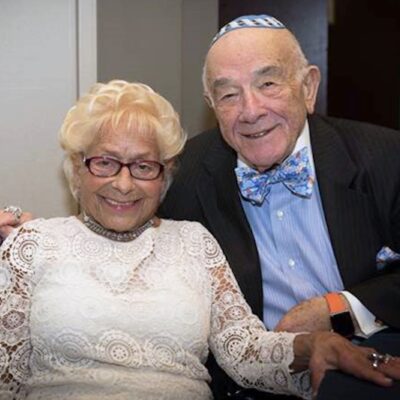The Future of Israel Lies in the Negev
 A two day conference with a focus on building the Negev has just concluded in Miami. Here, with some comments is participant Jim Lodge, UJC’s Vice President for Israel/Overseas:
A two day conference with a focus on building the Negev has just concluded in Miami. Here, with some comments is participant Jim Lodge, UJC’s Vice President for Israel/Overseas:
The end of the first day of the Negev Conference and my mind goes back to its beginning. Some fifty or sixty people – a turnout far beyond not merely expectations but even imagination – gathered in the Board Room of the Greater Miami Jewish Federation. Many didn’t know each other, or if they did, only on the phone.
Some of us hailed from federations (eleven were represented), three were mayors of Negev communities, and a number were here on behalf of our partners and other NGOs working in the Negev. But whatever our differences, we certainly could not stop talking.
We talked about models of economic development (loan guarantee programs, tourism, the supply and demand for labor, solar energy, mentorship). We talked about education and living bridge (Hebrew immersion studies, exchanges, English language proficiency). Tomorrow we will talk about attracting young people to the region and the specific needs of the Bedouin (some 25% of the population). We talked about how these issues all interrelate, that no single strategy can work by itself.
And we talked about the region itself (IDF bases, Route 6, railroads, natural gas, olives). That was Shmulik Rifman’s remarks. He’s the mayor of the Ramat HaNegev Regional Council and Chair of the Negev Development Authority. I give him credit for summarizing most movingly what we all felt about this land: “I’ve been all over the world, and I’ve never seen such a beautiful Negev as my Negev.”
Here’s the background: For years, federations have been engaged in P2K and other kinds of bilateral relationships with communities in the Negev. As Max Kleinman put it, we’ve been like castles in moats. Nothing wrong with building wonderful castles – but it’s not enough. The issues of the Negev require regional thinking.
In fact, Zivka Greengold (mayor of Ofakim) stated that we are at a moment in Zionist history where it is incumbent on us – all of us, not just the Israeli Government – to settle the periphery.
The discussion was feisty enough that two of the presenters announced that the test of a good conference is that the earlier sessions make their own remarks obsolete.
More important was the outcome. We all agree there should be a regional approach. A regional approach is too large for any single strategy and it’s too big for any single federation. So we ended with the importance of forming a coalition. The form of the coalition, its priorities, its structure, its aegis are all to be determined. What seems clear is that we don’t want to stop.
So it should come as no surprise that the federations here want to keep the conversation going, and to learn from each other – to share experiences, go on missions to each others’ regions, and to gather again .
Undergirding this spirit is a renewed commitment to Zionist ideals that sing not just for the kibbutzniks of the Second Aliyah or the fighters of the Six-Day War – but for a new generation that (in the words of Myriam Lasry of Ayalim) is searching for its own role in building our country and land. As Naomi Efrat (Shahaf Center for Community Development and member of Kama Urban Community in Beersheva) emphasized, this is not a matter of giving, but of receiving, and its mood is not pity but pride. For we – North Americans and Israelis alike – have the opportunity to act on a vision of Zionism that leads from the sophisticated center to the under populated periphery.
Perhaps unexpectedly, Kher Albaz, director of Social Services for Segev Shalom and a leader of the Negev’s Bedouin community, reinforced that vision. The Bedouin are part of the Negev and its people. They too must be brought into a shared vision for Israel.
Of course, commitment without action is vacuous. The Negev Work Group has already committed itself to a program now taking shape under the banner of the Israel Teacher Corps. We are also learned of an exciting venture presented at the Conference by Ofir Fisher (COO, OR Movement) and Leah Golan to attract and support newcomers to the Negev.
New ideas are plentiful: hasbara on the region’s behalf in Israel, discussions with the Government of Israel, the development of investment vehicles, promotion of gap-year opportunities for Israelis, regional vocational training and placement programs.
What will we decide on? Well, we don’t know yet. We need to keep talking, keep meeting, keep connecting – to do what our system has always done: Create a shared commitment across this system of federations.
title quote: David Ben-Gurion














